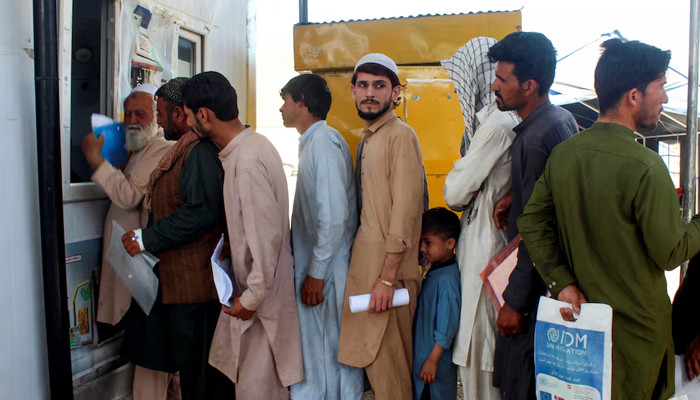Pakistan Sets Deadline for Afghan Nationals’ Return
The State Minister for Interior, Talal Chaudhry, has officially announced that Pakistan has established a deadline of June 30 for the voluntary repatriation of registered Afghan citizens, including those holding Proof of Registration (PoR) cards. After this date, formal deportation procedures will be initiated.
“Afghan refugees have been, and will continue to be, treated as guests. They are being repatriated with complete dignity and respect,” he stated.
He further elaborated that this measure aligns with Pakistan’s One Document Policy, under which 857,157 undocumented individuals, predominantly Afghans, have been returned to their native country since the policy’s implementation. Going forward, those wishing to enter Pakistan will be required to obtain visas, in accordance with international standards.
The second phase of repatriation, which concluded on March 31, focused on Afghan Citizen Card holders. The current emphasis is on PoR holders, who are required to leave by the end of June.
Meanwhile, UNHCR spokesperson Qaisar Khan Afridi emphasized that all repatriations must be voluntary and not enforced.
“Among these refugees are former officials from the Afghan government, civil society members, musicians, and educated professionals. Forcibly returning them could expose them to significant danger,” he noted.
Afridi also pointed out that the UNHCR has received reports of detentions in certain areas of Punjab, even involving some documented Afghan refugees.
However, Chaudhry firmly denied these reports, asserting that no such instances have been officially documented and that prior claims were found to be untrue upon investigation.
He clarified that Afghan refugees who do not depart within the specified timeframes are not immediately deported. Instead, they receive a notification and are then transported to refugee holding centers, where they are provided with sustenance, shelter, security, medical assistance, and travel arrangements.
“This is an organized, compassionate process. There is no disorder. Our hospitality remains extended to Afghan citizens,” Chaudhry emphasized.
He also cautioned against external pressures and fraudulent activities, noting the seizure of counterfeit Pakistani passports in Gulf, Saudi, and European nations, which has prompted Pakistan to reinforce its internal controls.
“Just as Pakistanis adhere to immigration regulations abroad, Afghan citizens are also expected to comply with our laws here. In today’s global landscape, complete disregard for the law is unacceptable,” he concluded.



Comments (0)
No comments yet. Be the first to comment!
Leave a Comment